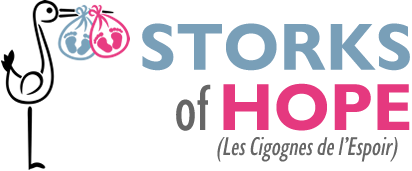The man's role in the IVF process: interview with Benoit Cayol, psychopratician and coach
Hello Mr CAYOL. Can you tell us about your background and your career?
My background is in HR, and I was head of recruitment and training at RTL (a company that sells advertising space). After that, I set up my own headhunting firm and worked there for a few years. At the same time, I took a coaching course. Following my training, I started offering coaching and training on a wide range of topics. I am also a business coach.
Today, I've stopped recruitment altogether. I've taken up a psychotherapeutic approach called Gestalt, which stems from a branch of psychoanalysis. The idea is to make the link between the mind, the heart and the body; between emotional cognition and bodily cognition. The principle is to focus on the present moment, the ‘here and now’.
Today, I provide business coaching and infertility support. I have trained as a psychotherapist and Gestalt therapist.
Do you support the couples or the individuals directly affected by infertility?
It varies. I work with both couples and individuals, but it depends on the client. However, there is an imbalance: it tends to be women who consult me, even though as many men as women are affected. This is due to upbringing, and what a man represents for the family. Either the couple comes together from the start, or the man comes afterwards. Sometimes, the man comes alone, but this is rare.
How do you involve the man in the IVF process?
I ask him about how he feels about the IVF process and how he met his partner. One of the most important questions is his desire to have a child. Is he having a child to please someone?
I also ask questions about his involvement. How present is he? Does he go to appointments with his wife? Does he worry about his wife's medication? How does he feel about the IVF process? How does the couple communicate during the process? Who deals with the administrative formalities?
What are the typical responses?
Men are quite present, but that doesn't mean they're emotionally involved. It depends on how they see a man's place in the couple. For some, the man has to be the strongest person in the couple.
Bringing up all these issues has a snowball effect, leading to internal questioning. The aim for some men is to acknowledge how they feel at each stage.
Does the man's role in the family have any impact on his role in the IVF process?
It can have a huge impact, although this may not be visible. A matriarchal family where men play a lesser role, can have a knock-on effect on a man who won't be very present during the IVF process.
In your opinion, has the role of men changed significantly in the past years?
Research shows an increase in the number of couples undergoing IVF. It's becoming more and more common for couples to go through IVF because they want to have children later in life.
Today, men are more inclined to go to couples therapy, to acknowledge what they're experiencing as men and to connect with the family and their emotions. They are gradually opening up to fertility problems that may be their own, their wife's or the couple's in general.
Article published by the not-for-profit organisation ‘Les Cigognes de l'Espoir’. All rights reserved.

